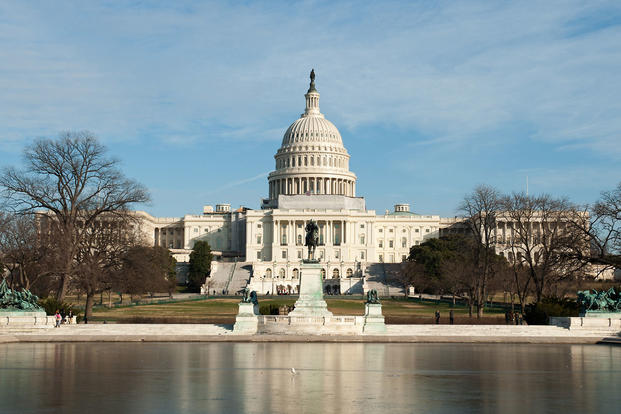You may have heard about a new "forever GI Bill" that is working its way through Congress and may become law by the end of the year.
What exactly is in this law? Is it good for you? We attempt to cut through all the legal language and explain it here.
What Is New About This GI Bill?
There are several changes being made to the Post-9/11 and other GI Bill programs. Read on to see which ones affect you. Remember this is only a proposed law; things can and probably will change.
Time Limits
The biggest attraction of this legislation is that it removes the 15-year time limit for those using their Post-9/11 GI Bill. Sounds great, but that ONLY applies to people (veterans and dependents using transferred benefits) who become eligible AFTER Jan. 1, 2018.
So if you are a veteran using your GI Bill, an active-duty member planning to use the GI Bill, or a dependent of either a veteran or active-duty member, this does not apply to you at all.
Current veterans, active-duty members, and dependents will still have 15 years from their discharge date to use up all their GI Bill benefits, or they will lose them.
Reservists
Reservists called to active duty under sections 12304(a) (when a governor requests federal assistance in responding to a major disaster or emergency), and 12304(b) (when the DoD mobilizes reservists in support of a combatant command) are now eligible. Previously, only reservists called to active duty by presidential order as a result of a national emergency were eligible. This applies to all reservists mobilized after Aug. 1, 2009, but reservists can receive payment only for classes that start after Aug. 1, 2018.
Reservists who were receiving REAP payments may now be eligible for the Post-9/11 GI Bill. Currently, there are less than 4,000 people eligible for this benefit.
Dependents
Fry Scholarship recipients are now eligible for the Yellow Ribbon Program.
Dependent's Education Assistance (DEA) monthly payments will increase by about 50 percent, but the maximum number of months that a dependent can get DEA decreases from 45 to 36. This is effective Aug. 1, 2018.
Some changes will be made to the transferred Post-9/11 GI Bill to make it easier to reallocate transferred benefits if the sponsor or dependent passes away.
Housing Allowance
Housing allowance is now based on the campus location where you attend classes, not necessarily the main campus.
School Closings
If you are attending a school that closes or loses accreditation and you don't get credit for the classes you took, you won't have to pay back any GI Bill benefits you received at that school. This is effective 90 days after the passage of the law. Unfortunately, it isn't retroactive.
Testing Programs
Under the new law, you will normally be charged less GI Bill entitlement for taking standardized tests such as CLEP, GMAT, etc.
Benefit Tiers
Currently, your GI Bill benefits are based on the amount of active-duty time you have. If you have less than 36 months active duty, you may get less than the full amount of GI Bill benefits. (See our benefit tiers page.) The new law makes some minor changes to this and says that anybody who receives a Purple Heart will get the full GI Bill amount no matter how long they served on active duty.
STEM Classes
There is a big push these days to get veterans enrolled in STEM (Science, Technology, Engineering, and Mathematics) programs. This new GI Bill creates the "Edith Nourse Rogers Scholarship."
This program will pay veterans up to $30,000 if they are enrolled in a STEM program, have used up all their GI Bill benefits, and have at least 60 semester/90 quarter hours credit toward a STEM degree. It also will pay those who already have a STEM degree and are working on a teaching certification. This is effective Aug. 1, 2018.
The new law also creates a High Technology Pilot Program that covers the full cost of high technology training not necessarily offered by a school. The details are sketchy, but the law says it is for people otherwise eligible under the GI Bill. Trainees will get the normal monthly housing allowance payments, and the VA has to monitor the companies giving the training to ensure the training results in gainful employment. This isn't scheduled to start until spring 2019.
Are There Downfalls to the New GI Bill?
Sounds good, right? More people eligible for the GI Bill, more types of training, more money paid to veterans -- all in all, a win-win situation.
Well, of course it has to be paid for, and Uncle Sam didn't forget this. The money will come in part by reducing the amount of Monthly Housing Allowance that new people get.
There was a little-noticed provision in the 2015 military budget that slows the rate of increase in Basic Allowance for Housing (BAH) so that active-duty BAH no longer pays the full amount of the housing cost.
As a result of that law, active-duty BAH is being reduced 1 percent every year from 2015 to 2019 so that by 2020 BAH will only cover 95 percent of a military member's housing cost. The VA's Monthly Housing Allowance, which is paid to GI Bill recipients, wasn't affected by the earlier legislation.
This new law changes that. Effective Jan. 1, 2018, the GI Bill housing allowance will also decrease. This will mean that anyone eligible for the GI Bill after January 2018 will get an average of $100 a month less housing allowance.
This affects only those who begin getting GI Bill benefits after Jan. 1, 2018. If you are currently getting GI Bill benefits, you will see no changes.
Of course, you won't get the extended time limits or many other benefits of the new law either.
As you can see the proposed changes will impact not only veterans but their families as well. For a detailed explanation on how these changes would affect military and veteran's dependents check out Military.com's Spousebuzz website.





